[Editor’s note: This story contains explicitly dehumanizing and racist language directed against two Black professors. We encourage readers to engage cautiously as the content may be triggering.]
At the start of his voicemail message, “Ross” sounds like a radio host. His voice is mellifluous, his pronunciation precise as he casually asks, “How are you today?”
Ross left the voicemail on March 5, 2022 for two Black University of Alberta academics, but specifically for Nigerian-born public health law professor Ubaka Ogbogu, an oft-quoted and frequently sharp online critic of then-Alberta premier Jason Kenney’s sometimes ideological and autocratic handling of the pandemic.
“Both of them have come from basically what is a filthy little shithole in Africa, which is Nigeria,” Ross says, his tone hardening in a finger snap to that of a venomous hate monger.
“They have availed themselves of our generosity, our hospitality, our financial infrastructure, and all they're doing is complaining and whining, wearing the colour of their skin as a race-baiting 'get out of jail free' card, 'look at me' card, 'oh poor pitiful me' card.
“It's getting a little sickening. We're getting tired of parasites.
“Tell them to pack their fucking bags and go back to the filthy little African shithole they came from. They're not wanted. You have a nice day.”
Ogbogu says the targeted hate began after he made what he thought was a flippant joke on Twitter.
“I’m just going to wear a mask now to spite Kenney,” Ogbogu tweeted on March 1, 2022, in response to a Kenney government directive that barred universities from maintaining mask mandates.
But on March 3, Alberta’s busy premier took the time to slap back at Ogbogu on Twitter.
“Sad to see how deranged the left has become. This NDP law professor will wear a mask ‘to spite’ me. Why is everything always political to these lefties? And why is the NDP angry about getting life back to normal.”
Ogbogu said that after being negatively ratioed on Twitter, Kenney deleted the tweet, then reposted it on his Facebook page, where he found a friendlier reception.
That same day, March 3, Ogbogu asked Kenney on Twitter to remove the Facebook post, calling it a “violent call to arms against me.” The post is still up.
Ross was forced to leave his hate message on the phone of another law professor because Ogbogu, fearing for his safety, had removed his phone number and email from his online university profile.
Ogbogu had reason to be afraid.
“Ross” is 62-year-old Donald Alexander Laird. He is scheduled to appear in Lethbridge provincial court on Nov. 20 for a preliminary hearing. Lethbridge police charged Laird on March 31, 2022 with harassing a person, believed to be a judge, and two counts of inciting or promoting hate toward Muslims between Aug. 14 and Sept. 8 of 2021.
Court records show Laird has had 10 charges dropped in Alberta since 2015, including six charges of unlawful harassment, one for harassment by mail, and another for indecent communications.
Laird also left a threatening message for University of Calgary professor Melanee Thomas who publicly supported Ogbogu after Kenney attacked him on Twitter. Both Thomas and Ogbogu filed police complaints in their respective cities but Calgary police took charge of the investigation. The Crown decided not to press charges. Alberta justice declined to explain why, citing Laird’s pending Lethbridge case.
An online search uncovered numerous posts on far-right websites in which Laird expresses extreme virulent hatred for Muslims, and the RCMP. Jews, he wrote in one post, deserved to die in the Holocaust because they are feckless cowards. He authored another article entitled, “Muslim Men: Pathetic Cowards and Uninspired Apes.”
Ogbogu believes Kenney intentionally dog whistled people like Laird.
“It was at the time of anti-mandate sentiment among the population and so he was setting me up to be a target,” Ogbogu said.
“I know this because of the calls that I got after, which cited Kenney's tweet.
“And he also framed it in a way that would attract anger.”
Ogbogu said he has never been an NDP member and publicly criticized NDP policies when they were in power.
Despite this, Kenney “issued a lie that the [Kenney government’s] issues managers have been telling from the time he took office, which is that I am an NDP surrogate, and that I act on behalf of the NDP.
“So he told a lie to be able to sort of initiate this attack and resentment towards me.”
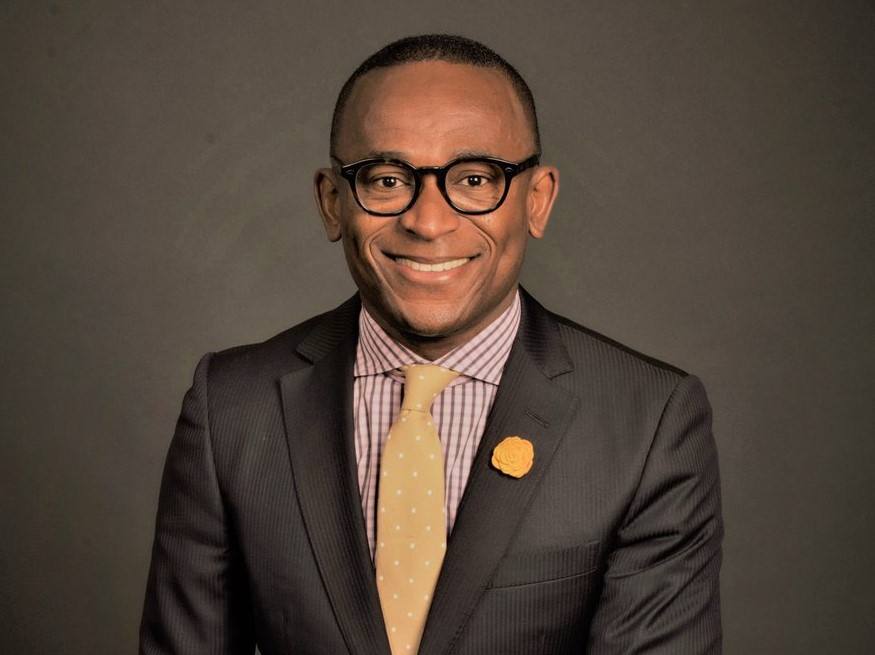
Brian Shane of Calgary specifically referenced Kenney’s comments about Ogbogu in a March 5, 2022 email to Ogbogu’s university email address that Shane somehow found.
“This is what happens when you say things in the media,” Shane wrote. “People get pissed off.
“Jason Kenney is the premier and he makes the rules, not you. The people out here are done with all you woketards and WEF [World Economic Forum] paid commies spewing your tyranny and fear porn all over the news.”
In a brief phone interview, Shane, who owns an autobody shop in Calgary, was aggressively unrepentant even when bluntly asked if he understood he was behaving like a fascist by attempting to silence a critic of the premier.
“I'm allowed to tell him to shut the fuck up. He doesn’t have to do it,” Shane said. He later assumed the mocking tone of a teasing child, as Donald Trump often does when denigrating people, to add that it was too bad if people like “Oogooboogoo” get “butthurt” when they’re told to not criticize “my premier.”
Shane boasted that he has called or emailed people with whom he disagrees for 20 years “to tell them to shut their fucking mouth,” which he said has led to visits from the Calgary Police and the RCMP.
Without prompting, Shane offered that he had called the University of Pennsylvania that same morning to complain about its cancellation of an appearance by what he said was a right-wing “reporter.” It was Proud Boys co-founder Gavin McInnes.
Kenney did not respond to interview requests. He resigned his seat in the legislature in late November 2022 after winning only 51.4 per cent support in a United Conservative Party leadership confidence vote in May. He is now a senior advisor with the Bennett Jones law firm and was recently appointed to the board of ATCO Ltd., the giant Calgary utility and energy company.
Kenney’s groundless public attack on Ogbogu typified his behaviour in the public realm during his foreshortened time as Alberta’s premier — and in the decades before.
Though Kenney has been replaced by Danielle Smith as leader of the UCP, the political culture he fostered, as detailed in this Tyee investigation, forms a crucible for this election season in Alberta.
In fact, Kenney enflamed extremists like Shane with his tactics only to lose his leadership to Smith as she better appealed to the hard-right populist fringe his tactics cultivated.
Smith has capitalized on the resentment Kenney stoked, whether by calling for Alberta to ignore federal laws or by saying no one has faced worse discrimination than the unvaccinated, or by vowing to outright pardon people convicted of defying COVID public health measures.
She has likely benefited as well from the scorched-earth insults employed by Kenney and his team in an attempt to tarnish Alberta NDP Leader Rachel Notley, Smith’s rival in this election. From Kenney’s camp Notley faced a drumbeat of sexist denigration that included calling her an “unhinged” liar.
Yet the media largely treats this transformation of political norms in Alberta as last year’s movie. On the campaign trail Smith has never been pressed by media to disavow the bullying methods of Kenney and his government and the harm it’s done to citizens’ reputations and well-being. Some of the people key to carrying out Kenney’s intimidation and bullying agenda continue to hold political jobs in the Smith government.
Now, as Smith courts more moderate voters by walking back many of her harsher and more extreme utterances, a question looms.
If Smith and her UCP win election on May 29, which political playbook will they pull off the shelf to guide their government? Will it be Kenney’s rules of war or methods less potently polarizing?
The politics of being ‘a dick’
When he falsely smeared Ogbogu for political reasons, Kenney once again revealed his penchant for performative malice, a character trait he has displayed for decades.
In leaked audio of a 2000 speech to Canadian Alliance supporters, Kenney boasted that as a student at the University of San Francisco’s St. Ignatius Institute in the 1980s he had led a campaign to overturn a spousal law that permitted gay men to visit their dying partners in hospital during the AIDS epidemic.
Moreover, Kenney’s attack on Ogbogu exemplified the culture of hyper-partisan political entitlement, tribalism, bullying, intimidation and authoritarianism that became the hallmark of the government he led for three years from a premier’s office where former senior staffers say power, and political communications, was concentrated and directed.
The Tyee’s review of hundreds of tweets and Facebook posts reveals Kenney, some of his cabinet ministers, and a coterie of highly paid political staffers, conducted targeted, sometimes co-ordinated, online attacks against what former senior staffers say were any “perceived enemies,” including academics, journalists, doctors, teachers, union leaders, environmentalists, provincial and federal opposition politicians, even private citizens.
“If you made it onto the enemies list, they will expend a lot of time, effort, energy and money and will do whatever it takes to come and get you,” one former staffer told The Tyee.
“They will do anything. They want to win,” another former staffer independently said. “And once you're on the enemy list, [it is] like a target on your back.”
In an emailed statement to The Tyee, Jonah Mozeson, the premier’s director of communications, said, “Premier Smith has instructed political staff to ensure their activities online best serve the interests of Albertans and she has emphasized that they are to conduct themselves in a respectful and constructive manner.”
Mozeson issued that statement before the provincial election and before CBC News revealed Smith had pledged support to a street pastor criminally charged for behaviour anything but respectful and constructive. Artur Pawlowski, well known for his extremist, bigoted views, was facing trial — and eventually convicted — for rallying an anti-vax convoy crowd to break the law. The UCP and Smith rejected calls from the opposition NDP for an independent investigation into her alleged meddling in justice proceedings.
During her leadership campaign, Smith catered to the furious edges of the UCP coalition, but Kenney, her predecessor, set the stage. In April 2019, Kenney won the provincial election in a landslide, capturing 63 of 87 seats, based on a platform that promised antagonism and the targeting of perceived enemies of the province.
In a September 2022 article for Alberta Views magazine, University of Alberta political scientist Jared Wesley averred that Albertans in 2019 wanted a “dick” like Kenney to lead them.
Wesley directs Common Ground, a team of researchers from the university that is attempting to understand what motivates Albertans politically. To that end, the team has conducted polling and focus groups over the past decade.
A November 2019 Common Ground survey had found support for separatism had reached 30 per cent.
“Many Albertans wanted someone new to protect their interests against a ‘marauding’ federal government and disrespectful fellow provinces,” Wesley wrote.
A March 2021 survey asked respondents to identify one word that best described Kenney.
“The top responses — including ‘liar,’ ‘arrogant,’ ‘dishonest’ and ‘asshole’ — mirrored what the survey heard from dozens of focus groups across the province,” Wesley wrote. “In more than one session, participants reached consensus on labelling Kenney as “a dick” (their word). This reputation served him well, at least in the beginning.”
It served Kenney well, Wesley wrote, because western alienation had reached “a fevered pitch, with the Trudeau government in Ottawa embodying generations of Albertans’ animosity toward a so-called ‘Laurentian Elite.’ A second Trudeau victory in the fall of that year — despite the Conservatives receiving more votes than the Liberals — only inflamed tensions.”
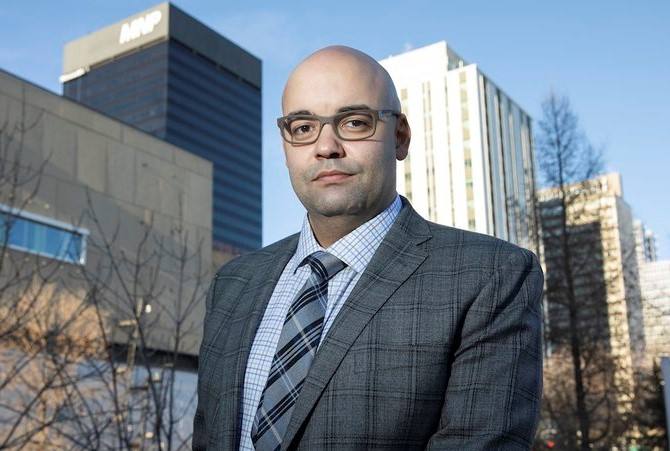
Kenney’s use of state power to attack critics and perceived enemies is not new in Alberta.
“But I would say that the lengths to which these ministers are willing to go to, and their staff are willing to go to, to preserve what they feel they're entitled to is really without modern precedent,” Wesley said.
“You have to go back to Social Credit days when [the government of William Aberhart] passed the act to stifle journalists and the Edmonton Journal won a Pulitzer Prize for standing up to it.”
“It speaks to this sense that they think they can do no wrong and they think that their place in the pecking order is beyond reproach,” he said. ”And anyone that challenges that is viewed as an enemy as opposed to an adversary.”
Entitlement — the belief that a single party has a natural right to rule — has been omnipresent among Alberta conservatives for decades.
This hyper sense of entitlement, Wesley said, plays out as tribalism where opponents are not simply to be defeated at the ballot box but vanquished, entirely removed from the public arena.
“It is a hallmark of Trumpism,” he said, “and even Boris Johnson, to an extent, tried it in the U.K.”
Political scientist Lori Turnbull is director of the school of public administration at Dalhousie University in Halifax and an expert in political ethics. The Kenney government, she said, normalized bullying to a degree never before seen in Canadian politics.
“This is a total breakdown in civil discourse,” she said. “There is no respect for differences of opinion or politics.
“They will not tolerate any sort of dissent. They will use the apparatus of the state to bully people. And that is abusive.”
The Kenney government’s online behaviour fits the definition of what academics call stochastic terrorism. The attempts to dehumanize and vilify perceived enemies is meant to elicit disgust, one of the strongest and most complicated emotions. Creating disgust in turn encourages or gives licence to their supporters to harass their perceived enemies on social media, to pile on — or in the case of Laird and Shane, to directly intimidate them.
“That is the whole point, right?” Turnbull said.
“It creates a sense of a consensus around something that is, in this case, horrific and is meant to scare people.
“What is their take-home message? I'm not going to criticize the government, because if I do, I'm going to get eviscerated on Twitter. And I don't want to do that to myself; I don't want to do that to my family.”
Kenney previously served as a minister in Stephen Harper’s government, which Wesley said also employed staffers who attacked critics and perceived enemies.
The difference between the Kenney and Harper governments, Wesley said, is that Harper also employed experienced staff who knew how to get the government’s work done, while “over time Kenney found himself surrounded by sycophants and political rookies, who were bent on tribalism.”
Inside the Kenney UCP’s troll machine
The assessments by Wesley and Turnbull square with the experience of three former Kenney government senior ministry staffers. They spoke on condition of anonymity because it could affect their current employment and future job prospects in politics.
All had years of experience working in other governments and all independently said they had never seen a culture of bullying, intimidation and disrespect — including internally of staff and MLAs — as existed in the Kenney government. It emanated from the premier’s office, they all said, where Kenney surrounded himself with what one former staffer called “bootlickers.”
The former staffers however, stressed that they did not know if Kenney personally directed the attacks. Still, they said he at least tacitly allowed the online trashing and definitely set the tone through his own online and personal behaviour.
“It goes right to the top, of course, because if the premier doesn't implicitly or explicitly support this, there would be a stop put to it,” said a former staffer with more than a decade of political experience, including in senior advisory roles.
The veteran former staffer said Kenney had an overweening need to be viewed as the smartest person in the room and he was not to be questioned or contradicted.
“Dissent is not allowed,” the staffer said.
“So the only people that could rise to positions of leadership or seniority within the government, and around Kenney, are people who have just been bootlickers, the people who have reaffirmed his positions, reinforced his beliefs, and who will prove themselves to be loyal soldiers no matter what. In Kenney's world, loyalty is, ‘Thou shalt not disagree,’” the former staffer said.
“For a lot of other politicians, loyalty means, ‘Don't steer me wrong and if you see me going wrong, steer me back onto the right path.’ With Kenney, it was like, ‘I know for sure I'm on the right path, so don't question it.’”
The Kenney regime’s combative culture manifested itself, the former staffer said, through “a complete lack of oversight, discipline or direction in how to engage with some level of decorum on social media and frankly, in other communication streams.”
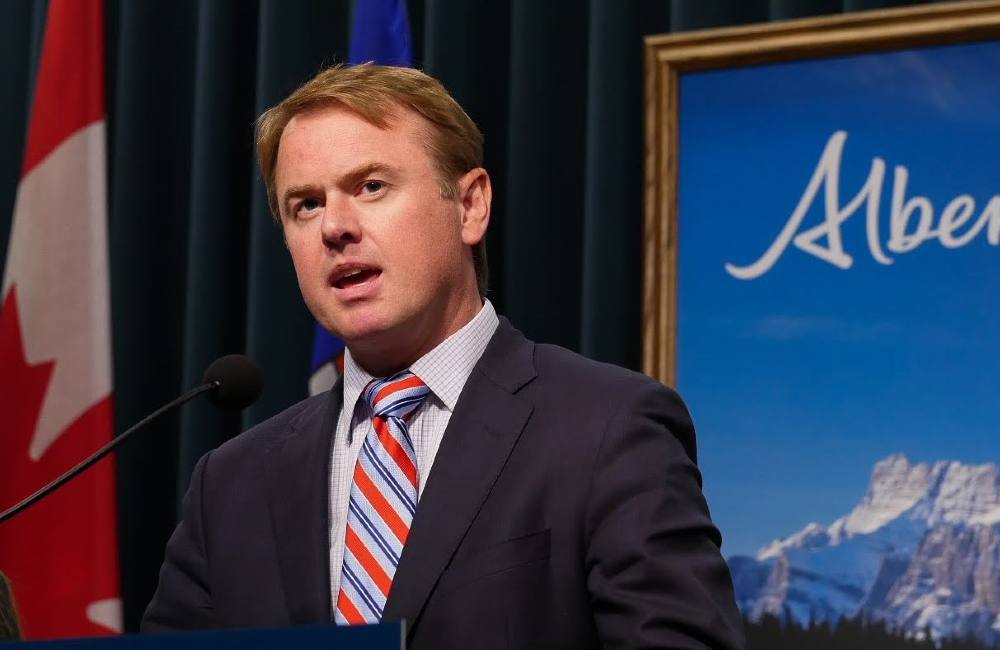
The former staffers acknowledged the obvious similarities to the Trump regime in the United States. But they were unaware of any sort of cognizant copying of the Trump playbook in terms of mendacious and disrespectful political communications.
Instead, they agreed with an assessment of it as a natural Lord of the Flies devolution to gutter politics. The culture wasn’t like a cult; it was more like “groupthink,” one former staffer said, in which mostly young political staffers were allowed free rein to express extreme dogmatic political views online and pile on to whoever was targeted for attack.
It became like a toxic frat house in which vulgar displays of bullying and intimidation were not only allowed but encouraged and celebrated.
In late March 2020, then-Alberta health minister Tyler Shandro and his wife berated Dr. Mukarram Zaidi on the driveway of his Calgary home.
The Shandros knew Zaidi from his involvement in a local UCP riding association and they confronted him after he reposted a derogatory meme about an alleged conflict of interest involving Shandro’s wife. The Shandros are part owners of a private health insurance benefits company. Alberta’s ethics commissioner had previously determined there was no conflict of interest.
Shandro never apologized to Zaidi and Kenney brushed aside calls for Shandro’s firing by normalizing the incident, telling reporters that “any Albertan would understand that a husband or wife will get passionate when their spouse is being attacked or even threatened and certainly defamed."
A third former staffer said UCP staff revelled in the incident.
“They used to treat it like a joke to be honest,” the former staffer said. “They would laugh about it.”
Shandro, a lawyer, is now awaiting the continuance in June of a law society hearing into this incident, and two other incidents that involved alleged bullying and intimidation. During the hearing, he committed a serious breach of the privacy of one of the witnesses.
‘Everything we can do to undercut and undermine you’
The online bullying went beyond a nebulous political culture; it became, to a degree, institutionalized.
Political staff in the premier’s, or a minister’s, office would “tweet out vitriolic, hostile, attacking information into the public domain and it would be liked by the executive director of communications,” the veteran former staffer said.
“It would be implicitly encouraged, if not explicitly encouraged,” and staffers were expected, as part of their job, to push back.
“So if someone says something negative about us in the public forum, Twitter, or any other social media, we go back at them — always.
“And that was the opposition, that was the media, that was academics, that was other public servants, unions, doctors — all of these groups who the UCP sees as being their enemy.
“And so if we have determined you are our political enemy, we will do everything we can to undercut and undermine you in the public domain. And the way we do that is we send our staff out to — I don't know if harass is too strong a word — but certainly to try and engage, undermine and discredit you.”
Another political staffer said Kenney never talked to political staff. Instead, the premier’s office directed attacks on perceived enemies.
“There is a Slack chat and the issues managers would send you a note saying, ‘Hey, here is what this person is saying about your minister or your program,’ and they would suggest you reply. And the reply would be shared on Slack and then all the staffers would be encouraged to like or retweet the tweet.”
The former staffer said anyone — even private citizens — was fair game.
“They were viewed with contempt but it wasn’t contempt rooted in any kind of material objection,” the staffer said. “It was just, ‘You’re not one of us, therefore, we have carte blanche to nuke you and assassinate your character online.’ There were no repercussions for targeting people.”
In November 2019, Katy Merrifield was the executive director of communications and planning in the premier’s office. She responded to a post on Twitter from an anonymous critic who questioned the unusually large number of political communications staff with: “Many thanks for that compelling observation, you sad, sexist, basement-dwelling mouth breather.”
Merrifield was the British Columbia lead on Pierre Poilievre’s successful leadership campaign and is now a vice-president of Wellington Advocacy in Vancouver. She did not respond to interview requests.
On Aug. 23, 2020, the federal Conservative party held a leadership vote that elected Erin O’Toole. Federal Liberal MP Adam van Koeverden, a former Olympic gold medalist, tweeted:
“I’m going to bed and when I wake up the leader of the (federal Conservative Party) will still be someone who doesn’t believe in taking action on climate change, isn’t progressive on women’s rights, marriage equality or international development and still doesn’t have a plan to help (Canada) through COVID.”
Bryan Rogers, then an issues manager in Kenney’s office responded: “You’ll still be a douchebag, however.”
Rogers, who did not respond to interview requests, is now chief of staff to Alberta Infrastructure Minister Nathan Neudorf.
In an interview, van Koeverden said he was taken aback that a senior political staffer with a provincial government would say something so crude and unprofessional on social media.
“I wasn't talking about anything related to his government or his premier.” The attack, he said, is indicative of the decline of political discourse in Canada.
Sometimes a Twitter attack would be orchestrated, one former political staffer said, “knowing that it would elicit a response and get a digital story and then that would be used to send out an email to raise funds or whatever.”
The former staffers said neither Kenney’s chief of staff, or deputy chief, ever raised concerns about online attacks, even against private citizens, which is not surprising given that the premier operated a proxy Twitter account — @UniteAlberta — that for years consistently engaged in nasty personal attacks, including against UCP members who didn’t support Kenney during his leadership review.
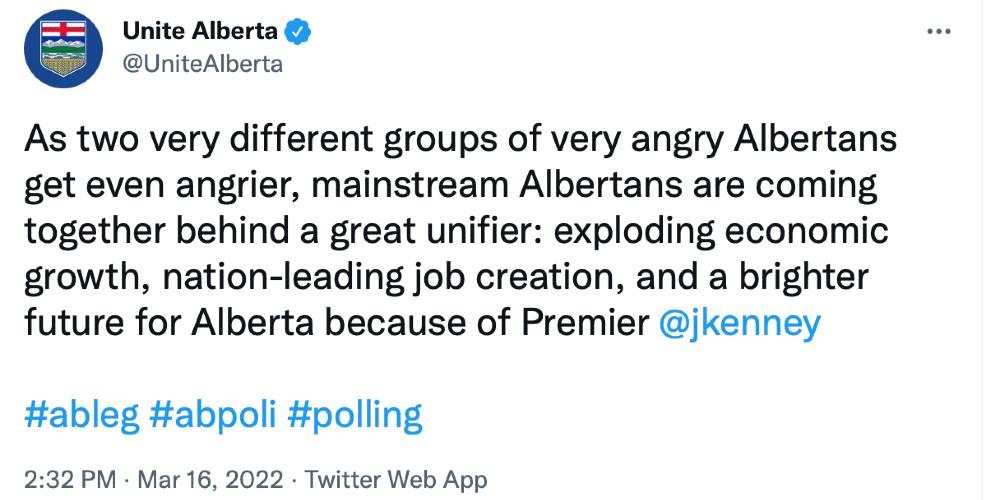
Harrison Fleming operated the Unite Alberta account for Kenney, a fact disclosed in the account’s biography. All three former staffers said Fleming, now director of communications for the Ontario Education Ministry, was responsible for directing and orchestrating many of the online attacks by political staffers.
Two former staffers said Fleming would harangue press secretaries in meetings and call them out on Slack to be more aggressive online.
“It was a tear down with no kind of thought about what this does to stakeholders or how it poisons the whole discourse,” said one former staffer. “It was really reflective of immature leadership, people with very thin skin, totally unfit to be in executive positions in government.” Attacks on political opponents are normal in Canadian politics but there are unwritten limits, unwritten rules of engagement. The hyper-partisan rhetoric contained in election attack ads are generally eschewed by politicians of all stripes outside election periods, as are personal attacks that question a politician’s sanity.
During the Kenney regime, his senior political staff routinely employed language on social media that sought to denigrate, demonize and dehumanize political opponents.
The rhetoric was beyond anything political observers and several former political staffers had ever seen in Alberta or Canadian politics — until Pierre Poilievre ascended to the federal Conservative party’s leadership.
Brock Harrison was particularly vitriolic and disrespectful in his attacks on New Democrat Leader Rachel Notley. Harrison had been Andrew Scheer’s director of communications until 2019 when he was fired. He then returned to Alberta where he eventually served as Kenney’s director of communications and planning.
In several tweets Harrison called Notley a liar, accused her of being “unhinged” or insinuated she was being overly emotional, a trope favoured by misogynists in attacks on female politicians.
On July 8, 2020, Harrison tweeted, “Another question period, another overwrought, incoherent performance by the former premier — filled with invented numbers and unparliamentary rhetoric.”
On April 1, 2020, Mount Royal University professor Duane Bratt tweeted a 2018 campaign pledge from Kenney in which he promised to raise the bar of civility in the legislature.
Harrison responded: “And we’ve kept it. Tune in to (question period) on any given day and you’ll see one side behaving like adults and the other like spoiled kindergarteners. The opposition leader rage screaming while the premier speaks [is] an unfortunate daily feature.”
In a Feb. 15, 2022 post on Twitter, Harrison asked Notley “Do you ever stop lying?” and said, “This is unhinged garbage. Even for you.”
The UCP, and Smith, during the current election campaign, have continued to accuse Notley of lying. In a recent retweet of a UCP war room post, Smith said: “Lying is not a plan. It is clear that Rachel Notley has no vision or new ideas for Alberta.”
Smith, and the UCP war room, were accusing Notley of lying for factually stating that Smith has repeatedly said she wants to privatize significant parts of Alberta’s health-care system, including the province’s urban hospitals.
Harrison is now the manager of government and external relations for TC Energy. He did not respond to several interview requests.
The Unite Alberta Twitter account, the premier’s proxy account, on Feb. 25. 2022 tweeted: “MLA Notley is getting pretty unhinged looking for things to be upset about.”
The NDP generally has avoided personal attacks that question an opposition politician’s sanity — until Danielle Smith became premier. On Nov. 19, 2022 Samir Kayande, the NDP candidate for Calgary-Elbow, tweeted that “Smith says so many insane things that it is easy to believe that she has no filter and doesn’t believe half of what she says.” The tweet was deleted after The Tyee contacted the NDP to ask if the party thought it was appropriate to question an opposition politician’s sanity.
Amidst COVID, a strategy to ‘create information chaos’
The online attacks by Kenney and his government’s staffers were most intense during the height of the pandemic in 2020-21 and were designed to support a political agenda that was often contrary to public health messaging.
Timothy Caulfield is a University of Alberta professor in both the faculties of law and the school of public health. A best-selling author and TV host, he has for years specialized in debunking the myths and misinformation about science, health and medical treatments that have proliferated in the age of social media.
As part of his research, Caulfield monitors social media, and he said he observed the government’s online behaviour in real time, including dozens of tweets issued by Matt Wolf, the former executive director of issues management in the premier’s office, and Alberta Health press secretary Steve Buick.

“One of the fascinating things about the Kenney government is that they were really trying to walk a tightrope between signalling to their base — their ideological base — by producing messaging that that community would feel comfortable with, while at the same time trying to institute [public health] measures that would protect Albertans,” Caulfield said.
The conflict between attempting to appease the UCP government’s fundamentally anti-restriction base while implementing measures to ensure — barely — that the province’s health-care system wasn’t overwhelmed produced inconsistent ad hoc policy and a “conceptually incoherent approach” to public messaging, which in turn created public mistrust, Caulfield said.
“What happens is people are pointing to the inconsistencies and highlighting them and they use that as an argument as to why governments can’t be trusted, public health agencies can’t be trusted,” he said, adding, “that clearly seemed to be what the goal was — to create more mistrust, to polarize Albertans more.”
The result was that while the public health community, social policy experts, clinicians and others were “working to do the best they can to save Albertans and fight this pandemic, on the other side, you have the government denigrating and mocking and attacking these individuals and creating an environment of polarization and anger and rage,” Caulfield said.
“They were just trying to create information chaos and they were trying to create mistrust because they believed it was going to result in a political advantage.”
In dozens of tweets over several months, Kenney, Wolf and Buick attempted to minimize the pandemic’s tragic toll on the public and the health-care system.
They attacked journalists, media outlets, academics, doctors, opposition politicians, private citizens — anyone who criticized government policies or challenged its narrative. They often engaged in sneering, ad hominem attacks and variously accused their targets of being inept, wilfully dishonest, biased, or proxies for the NDP or federal Liberals.
On June 15, 2021, Wolf accused CTV Edmonton of “selling fear for clicks” after they reported a biologist’s statements calling for increased restrictions to address rising Delta variant cases.
“Vaccines work. But a small minority just don’t seem to want the pandemic to end,” Wolf tweeted.
On July 28, 2021, Kenney tweeted a meme in which he called on the media to “stop promoting fear when it comes to COVID-19 and to actually start looking at where we’re at with huge vaccine protection. Vaccines work. We should embrace the science.”
These statements by Wolf and Kenney were false and misleading. No reputable media outlet had ever suggested vaccines don’t work. But all had reported the statements of experts calling for continued pandemic restrictions as scores of people were hospitalized and died.
Caulfield especially noted Wolf’s use of a hackneyed propaganda slogan to undermine public trust in the media and the experts advocating for the maintenance of pandemic restrictions.
It appeared Wolf made a conscious decision to resurrect the smearing label “yellow journalism,” Caulfield said, as part of a co-ordinated campaign to attack media outlets for their straight reporting of COVID statistics. Yellow journalism is based on sensationalism, crude exaggeration or scandal mongering.
On June 2, 2021, Wolf stated categorically against all evidence: “The pandemic is ending. Accept it.”
Wolf may have been setting the stage for one of Kenney’s most infamous — and deadly — policy decisions.
On June 18, 2021, Kenney announced Alberta would be “Open for Summer.” He boasted it would be the first province in Canada to lift all pandemic restrictions as of July 1, just in time for the Calgary Stampede. As predicted, it backfired and the number of infections and deaths soared.
Using similar wording in tweets a week apart in July 2021, Wolf accused both CTV News Calgary and CBC Calgary of yellow journalism and not wanting the pandemic to end when the news outlets reported the province’s own statistics on rising COVID infections.
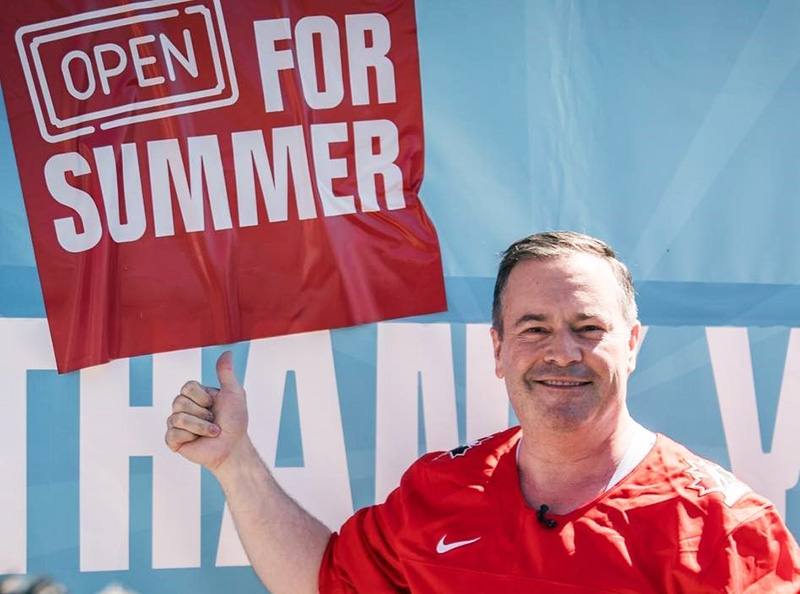
As the infection and death toll inexorably climbed, Kenney disappeared for 23 days and has never disclosed where he went on holiday. By August, with infections reaching 1,000 a day, the UCP blithely peddled "Best Summer Ever 2021" baseball caps on the party’s website.
By October, Alberta was in the grip of a fourth wave of the Delta variant with the highest rate of infections in the country — nearly four times the national average. And Albertans died of COVID-19 at nearly three times the rate of anywhere else in Canada — save Saskatchewan, where Kenney’s ideological doppelgänger, Saskatchewan Party leader Scott Moe, had mismanaged the pandemic in seeming lockstep.
Caulfied also observed Wolf frequently attacked the media and others using the same zero-sum false dichotomy employed by politicians like Kenney to attack environmentalists. Kenney claimed environmentalists, or “ecoterrorists” as he often called them, were intent on ending all oil and gas extraction.
In several tweets Wolf referred to “lockdown lobbyists.”
“He tried to create this false picture that there is this binary full lockdown where everyone is stuck in their house,” despite the fact this was never the case anywhere in Canada, Caulfield said.
“But they have done an incredibly effective job of creating this idea that all these ‘lockdown lobbyists’ want to do is lock people in their homes, keep kids from school as part of some kind of nefarious agenda,” as opposed to the reality, which was that “public health officials are weighing the evidence to try to strike the balance between public health and other social goods.”
Wolf left the premier’s office in early December 2021 but he didn’t stop his attacks on those responsible for continued public health restrictions.
To the contrary, Wolf took free rein to attack the province’s two most senior public health civil servants — chief medical officer of health Dr. Deena Hinshaw and Alberta Health Services CEO Dr. Verna Yiu — and anyone else that supported restrictive mandates.
In a series of tweets in December 2021, and January and February of 2022, Wolf insinuated that Hinshaw and Yiu were inflating the number of people in hospital with COVID and that restrictions on schools and businesses were unnecessary.
On Twitter, Wolf badgered Hinshaw and Yiu to release data that would show how many people were admitted to hospital specifically for COVID as opposed to entering hospital for another reason and contracting COVID while in the hospital.

Wolf did not respond to repeated interview requests.
The board of Alberta Health Services fired Yiu in April 2022 and then Danielle Smith, after her election, fired both the AHS board and Hinshaw in November of the same year.
During Smith’s leadership campaign, she alleged Hinshaw had given the government bad advice and suggested pandemic mandates were unnecessary.
Yiu declined interview requests. Hinshaw did not respond to an interview request made through the B.C. Ministry of Health, where she most recently worked on contract.
‘Our very own Axis of Drivel’
Steve Buick has served as a health press secretary, policy advisor or issues manager since 1996 and as senior press secretary to successive health ministers, he has bridged the gap between the Kenney and Smith governments both in his continued employment in a critical communications position and in the aggressively pugilistic attitude he brings to the job.
During the Kenney regime, and to a lesser extent the Smith government, Buick has peppered his Twitter feed with angry, caustic, personal, sometimes defamatory attacks, particularly against academics and journalists.
In February 2020, in the midst of the pandemic, Buick’s boss, now former health minister Tyler Shandro ripped up the contract with the province’s doctors and imposed changes to billing and compensation after talks broke down.
On April 15, 2020, Graham Thomson, one of Alberta’s most respected political columnists, promoted an opinion piece by Juliet Guichon and Ian Mitchell, faculty members in the Cumming School of Medicine at the University of Calgary. In a Twitter post, Thomson encouraged the public to read the article “to better understand the frustration/anger of doctors.”
Buick tweeted: “No this won’t help you understand anything except that sloppy, one-sided political advocacy pieces impress people with the same biases. Disappointing to see accomplished people like these authors publish stuff as biased and insubstantial as this.”
On May 11, 2020, Buick referred to the Edmonton Zone Medical Staff Association as an “[Alberta Medical Association]/NDP proxy, part of our very own Axis of Drivel.”
On several occasions, Buick targeted health law professors Lorian Hardcastle, of the University of Calgary, and Ogbogu, of the University of Alberta, including for providing expert comment in news stories. The two have also drawn Buick’s online ire for co-authored articles critical of government policies.
They pushed back. At the end of July 2020, Ogbogu tweeted an analysis of Buick’s tweets from that month.
“Since July 1, he tweeted 31 ad hominem and/or rude attacks. Thirteen were to women, 11 to men, the rest were to anonymous accounts or organizations. The 13 attacks against women were unprovoked (i.e. out of the blue and not in response to a tweet). Seven men received unprovoked attacks,” Ogbogu tweeted.
“Men attacked often received a substantive response also, but attacks on women were just plain rude or nasty. In addition to the 31 attacks, his tweets feature a ton of rude remarks (calling folks "silly," "ridiculous" or saying they were wasting his time)."
Ogbogu embedded a spreadsheet of Buick’s tweets that catalogued a concerted attack on him and Hardcastle.
In various tweets, Buick accused Hardcastle of being an “NDP surrogate,” of repeating NDP talking points, of being biased, of misusing her academic freedom, of advancing arguments that were beneath an adult let alone an academic.
“He accused me,” Ogbogu tweeted, “of partisan bias [and] of repeating false things (thereby discrediting myself), said my arguments are beneath any educated adult let alone a lawyer, called me part of an echo chamber, and accused me of playing ‘feeble games’ that should be beneath me.”
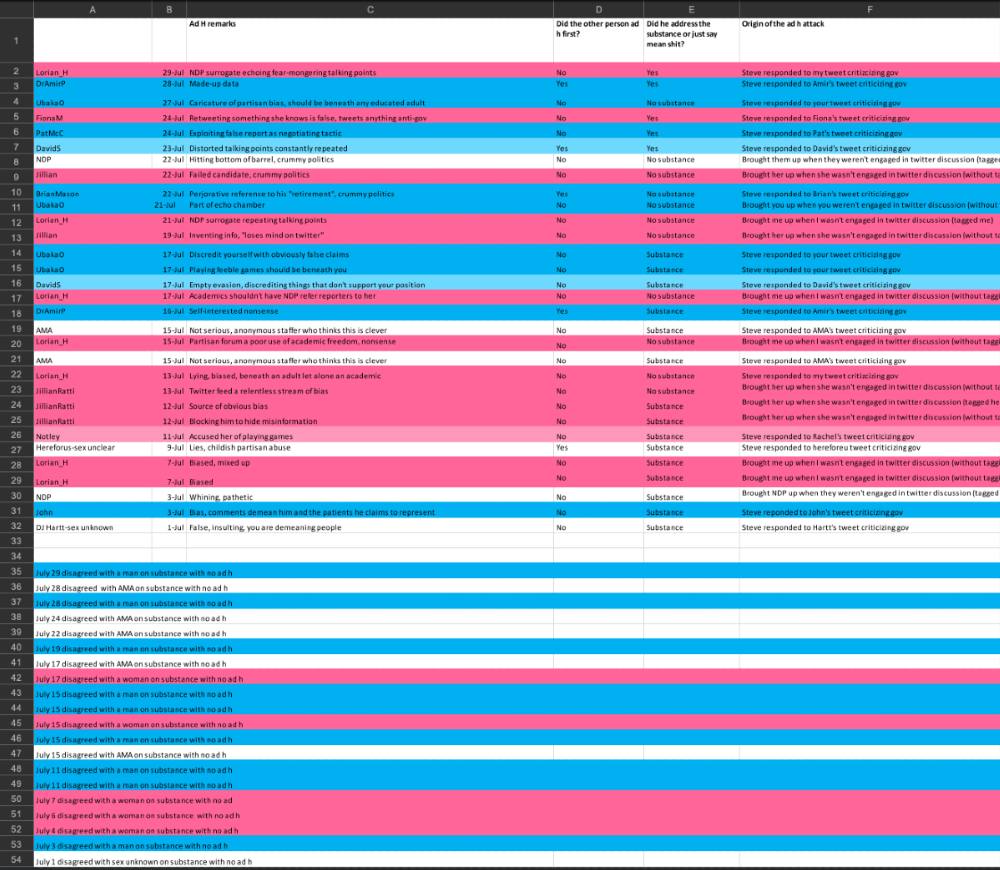
Like Ogbogu, Hardastle said she is not, and never has been, an NDP member.
“When I critique the COVID response, or when I critique health-care privatization, he is trying to discredit the claims that I'm making, which are based on evidence,” Hardcastle said in an interview. “He is trying to suggest they’re based on my political leanings.”
By contrast, Hardcastle said, when the NDP were in power, they never attempted to smear her when she publicly criticized their policies.
Hardcastle thinks Buick was attempting to bully her into silence.
“I think their goal, ideally, would be for me to go away and not say anything about the health-care system.”
She said she would have no problem engaging directly with Buick on the issues and if Buick thinks she is wrong based on her evidence, “then show me the data; you have much better access to the data than I do.”
“But there is just no need to have taxpayer funded bullies on Twitter.”
Reached by phone, Buick declined an interview request saying he saw no point.
‘Misinformation mongers’
Timothy Caulfield, the professor who specializes in debunking health myths, said the online behaviour of Kenney, Wolf, Buick and others from the UCP caucus and staff during the pandemic reveals a clear pattern of attempting to delegitimize legitimate voices. He calls them “doubt mongers” or “misinformation mongers.”
“That is what you see in a lot of these tweets,” he said. “They're really encouraging Albertans not to trust entities that are doing their best to represent the world in an objective manner.”
He thinks their online bullying actually worked.
Alberta, he said, “had the most polarized discourse in the country, among the lowest vaccination rate, among the highest levels of belief in conspiracy theories and among the highest COVID death rates.”
Ignored in all this was the human toll, Caulfield said. More than 5,700 people have died from COVID, and many others suffered or died while waiting for postponed surgery or cancer treatments. An uncounted number have been debilitated by long COVID, some for life.

Caulfield said the Kenney government’s malign attacks on those who legitimately promoted pandemic restrictions has created “a very bad situation if there is a public health crisis in the future.”
The “normalization of misinformation” about the pandemic by the Kenney regime also laid the groundwork for his successor, Danielle Smith, to revise history, to falsely claim that the pandemic is done with, and that restrictions were never needed, Caulfield said.
As recently as May 8, Smith issued a public statement in which she said “COVID was a divisive and painful period for so many, including myself, but is thankfully now over. I would hope we can all move on to talk about issues that currently matter to Albertans and their families.”
According to Alberta Health’s own statistics issued May 1, there were 482 people in hospital due to COVID, with 23 in ICU.
In the final paragraph of his September 2022 Alberta Views article, University of Alberta political scientist Jared Wesley addressed the political landscape Danielle Smith has inherited from Jason Kenney.
Wesley wrote that the failure of Kenney’s brand and style of conservatism should serve as a warning to those who continue to laud his leadership and blame circumstances beyond his control for his flame-out.
“The ‘prosperity first’ dogma and belligerent leadership that have come to define the modern conservative movement in Canada are great for riling up people who feel alienated from the political mainstream,” Wesley wrote.
“If Kenney’s tenure is any indication, however, these ideas are incapable of uniting communities behind a common cause and only end up further dividing a society in crisis. That is the legacy Kenney’s champions must live with, and the challenge his successors inherit.”
Successor Danielle Smith, and her UCP still stocked with many Kenney champions, find themselves less than two weeks away from voting day, facing what is expected to be the closest election in the province’s history.
‘I was getting death threats, rape threats’
Many journalists, academics and others who regularly engaged with the public on social media during the Kenney regime became inured, to varying degrees, to the bashing they received from government politicians, staffers and supporters.
But an obvious question is what effect did it have on everyday citizens who were targeted simply for exercising their rights to engage in free speech in a democracy?
In September 2019, Thelma, a young mother of two children on the autism spectrum, was outraged when Alberta Education Minister Adriana LaGrange cut program unit funding, while repeatedly claiming it had not been cut. This funding supports early intervention for children with disabilities and delays and was especially critical when children could not attend school in person due to COVID restrictions,
Determined to advocate for her children, and other special needs children, Thelma decided to speak out publicly. She joined a local NDP constituency board and agreed to speak at an NDP news conference about the special needs cuts.
LaGrange’s press secretary at the time, Colin Aitchison, and Harrison Fleming from the premier’s office, she said, were in the front row “mocking me and making faces at me.”
Aitchison, she said, told a TV reporter who had interviewed her for a story that because she had sat on an NDP board she was partisan and was exploiting her kids.
“They were awful,” she said of Aitchison and Fleming, “and Matt Wolf as well. It was a really scary time.”
Aitchison is now the press secretary to Alberta’s minister of mental health and addiction. He declined an interview request. Reached by phone at his office in Ontario, Fleming promised an interview but reneged.
After being subjected to attacks by Kenney government staffers, and intimidated and threatened by known, and anonymous, hyper-aggressive UCP supporters, Thelma now says she never will speak out again.
“I was getting death threats, rape threats, other kinds of threats that they were going to find my job, find my my kids, it was just ongoing,” said Thelma, who asked that her real name not be used because she fears more harassment and threats.
The harassment became so intense at times, Thelma said, that she would spend days in bed crying, “anxious that people were going to do things to my family.
“I went on long social media breaks because the harassment got to the point where people were just making things up about me and it was just a lot to deal with emotionally.”
With a job and children to take care of, Thelma said she realized “I couldn't expend any more energy on something that was bringing nothing but harassment.”
She got to know other public advocates who were female, including doctors and academics. And in talking together, they realized that any time they posted on social media, “within a few minutes, every press secretary was either commenting or retweeting a joke about us,” she said.
“They must have had some kind of group chat with a notification box for all of us to — anytime we did anything — come after us.” Which of course is exactly what the former senior staffers described; a campaign of systemic online harassment co-ordinated from the premier’s office.
Thelma believes the government staffers also co-ordinated their attacks with some dogmatic UCP supporters. She specifically asked The Tyee not to contact or identify one UCP supporter from Calgary who she said relentlessly harassed her for months — and publicly gloated about it.
In an online post, since deleted, she said the troll bragged that he and his friends in the UCP talked about ways to bring her down and “that I needed to watch out.”
“They were suppressive,” Thelma said of the Kenney regime and their supporters.
“It was methodical and they targeted anyone that seemed credible.”
If you have any information for this story, or information for another story, please contact Charles Rusnell in confidence via email.


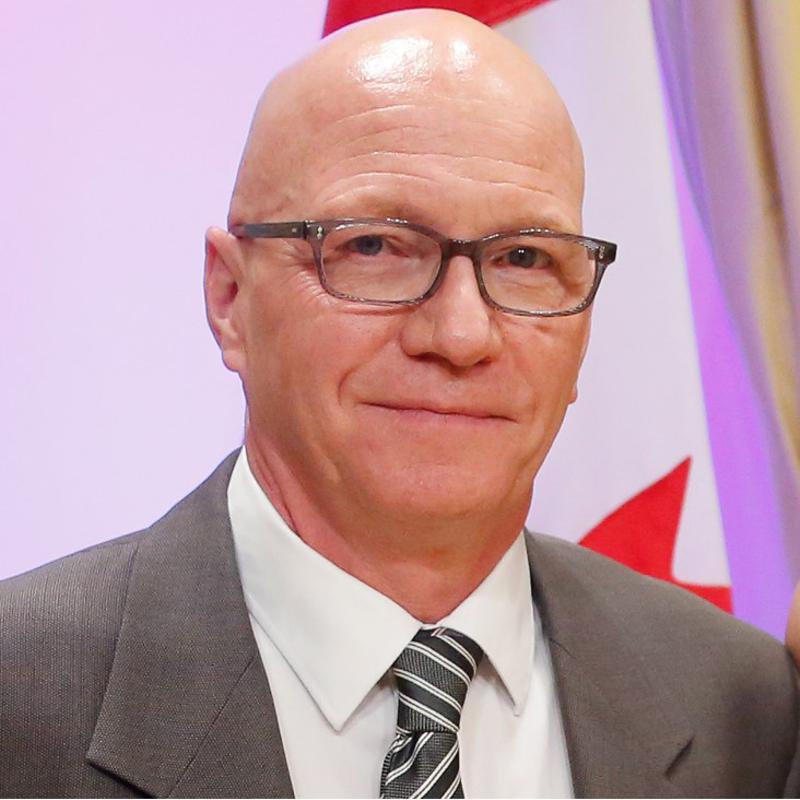
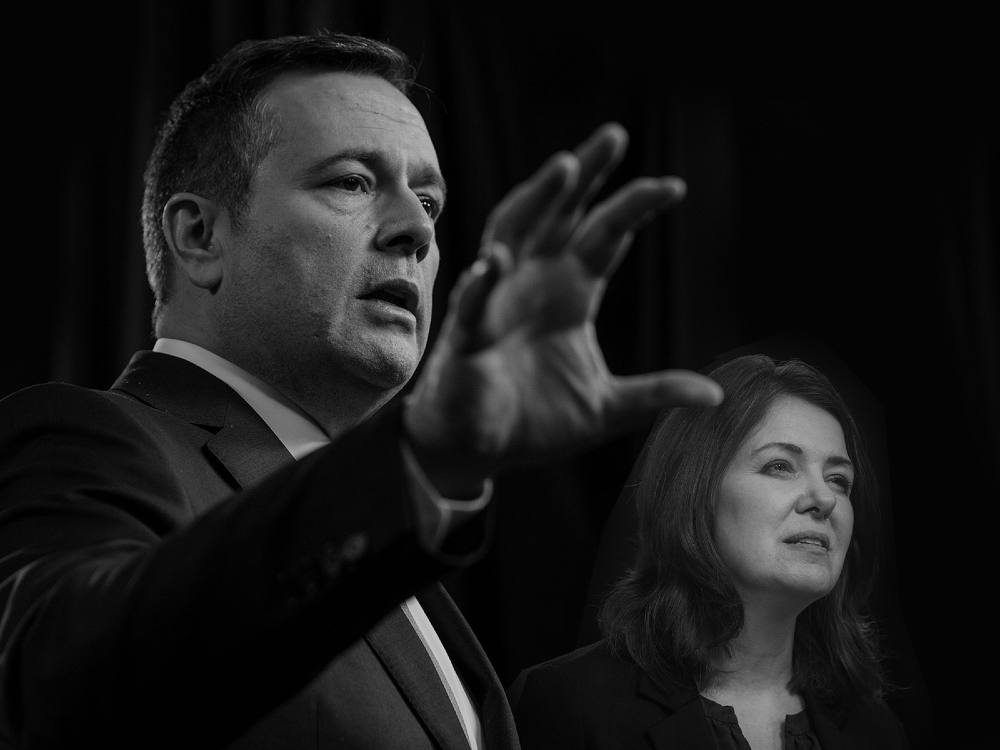












Tyee Commenting Guidelines
Comments that violate guidelines risk being deleted, and violations may result in a temporary or permanent user ban. Maintain the spirit of good conversation to stay in the discussion and be patient with moderators. Comments are reviewed regularly but not in real time.
Do:
Do not: